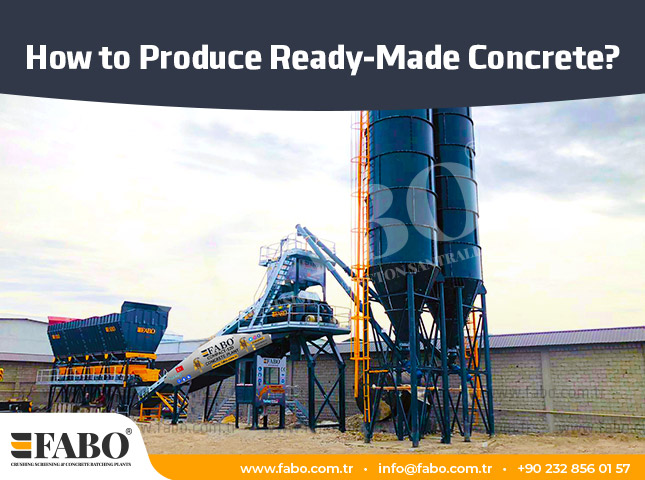How to Produce Ready-Made Concrete?
How to produce ready-made concrete? The question is important by both concrete producers and suppliers for concrete needs. Concrete is used in many areas today, especially in the construction and construction sector. Concrete production is a process that begins with the breaking of large-sized rocks and turning them into aggregates.
How to produce ready-made concrete? Back to the question: ready-made concrete is obtained by mixing natural or artificial aggregate with water and cement in certain proportions. Although concrete is essentially a mixture, it performs its main function after drying.
How to Produce Ready-made Concrete for Constructions?
In order to obtain ready-made concrete, the necessary materials for this process must be supplied first. In this process, aggregate is the most difficult material to produce and supply. Aggregates are small, cubic pieces of stone that are brought in small sizes or small sizes. Stones of this size can be found in nature. But concave plants are often used for aggregate production. Concave plants process large hard stones, making them suitable for concrete production. For this, it processes the stones through several stages and obtains aggregates of the desired dimensions.
After aggregate is obtained through concave plants, only cement and water are needed for concrete production. Ready-made concrete used in construction and construction is produced in concrete plants. These large machines obtain concrete mortar by mixing aggregate, cement and water through mixers in adjusted sizes. Concrete plants can be of different capacities and sizes.
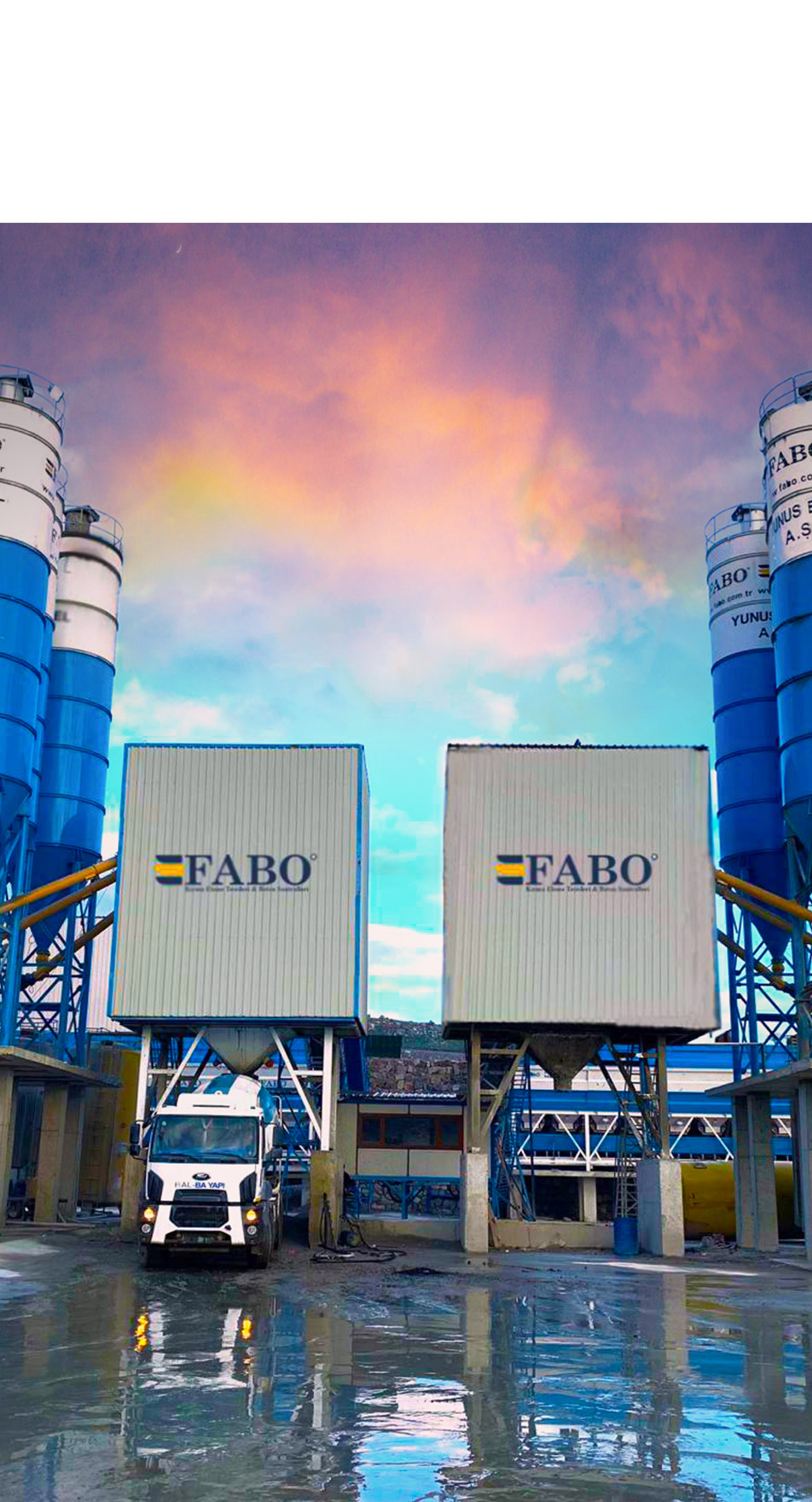
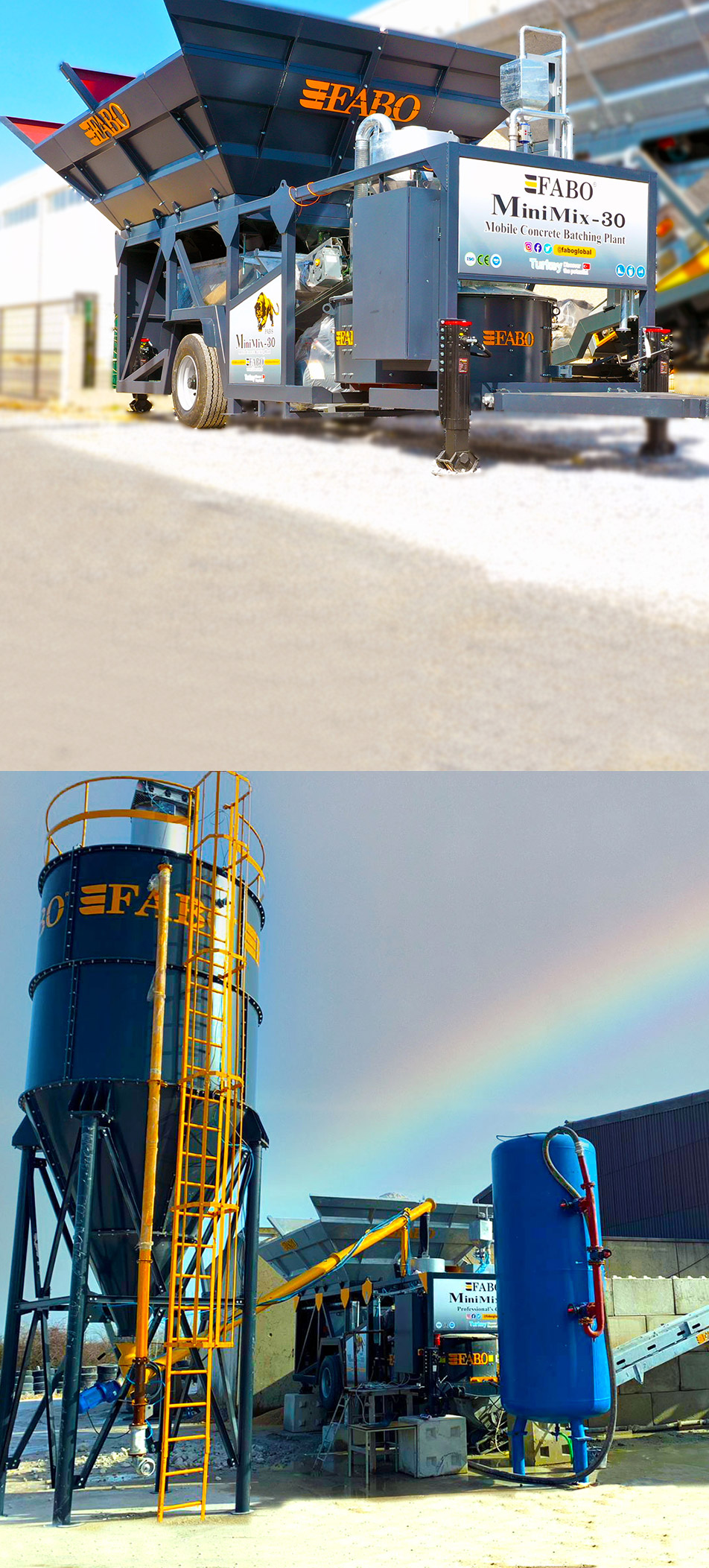
What is a Concrete Plant?
Concrete plant is a large size facility that produces ready-to-use concrete. In the majority of constructions and structures built today, ready-made concrete produced in these facilities is used. Concrete plants come together from highly powerful machines that can producelarge amounts of concrete. Ready-made concrete is usually used in two ways. The first is to produce concrete in the area where the construction will be carried out. The second is to transport it to another area via special mixer trucks after it is produced in the ready-made concrete plant.
Today, the need and properties of ready-made concrete, which is widely used all over the world, can change. Therefore, concrete plant manufacturers produce plants in different models to meet the different needs of companies. Concrete plants;
- Fixed concrete plant
- Mobile concrete plant
- Compact concrete plant
They are designed in 3 different structures. Each type of concrete plant has its own characteristics and advantages. Below we will discuss the types of concrete plants in more detail.
Fixed Concrete Plant
Fixed concrete power plantis a power plant built on a fixed body with high capacity production capability. These facilities, which are very well yielded for high performance projects, can produce concrete between 30 and 200 m3 per hour on average. There are different mixer options according to the sector and needs of the companies.
Other highlights of fixed concrete mixing plants are as follows:
- Production of more concrete at high capacity
- To be able to use it smoothly for many years
- Easy operation with computerized automation system
- Possibility to obtain various types of concrete with extra mixer option
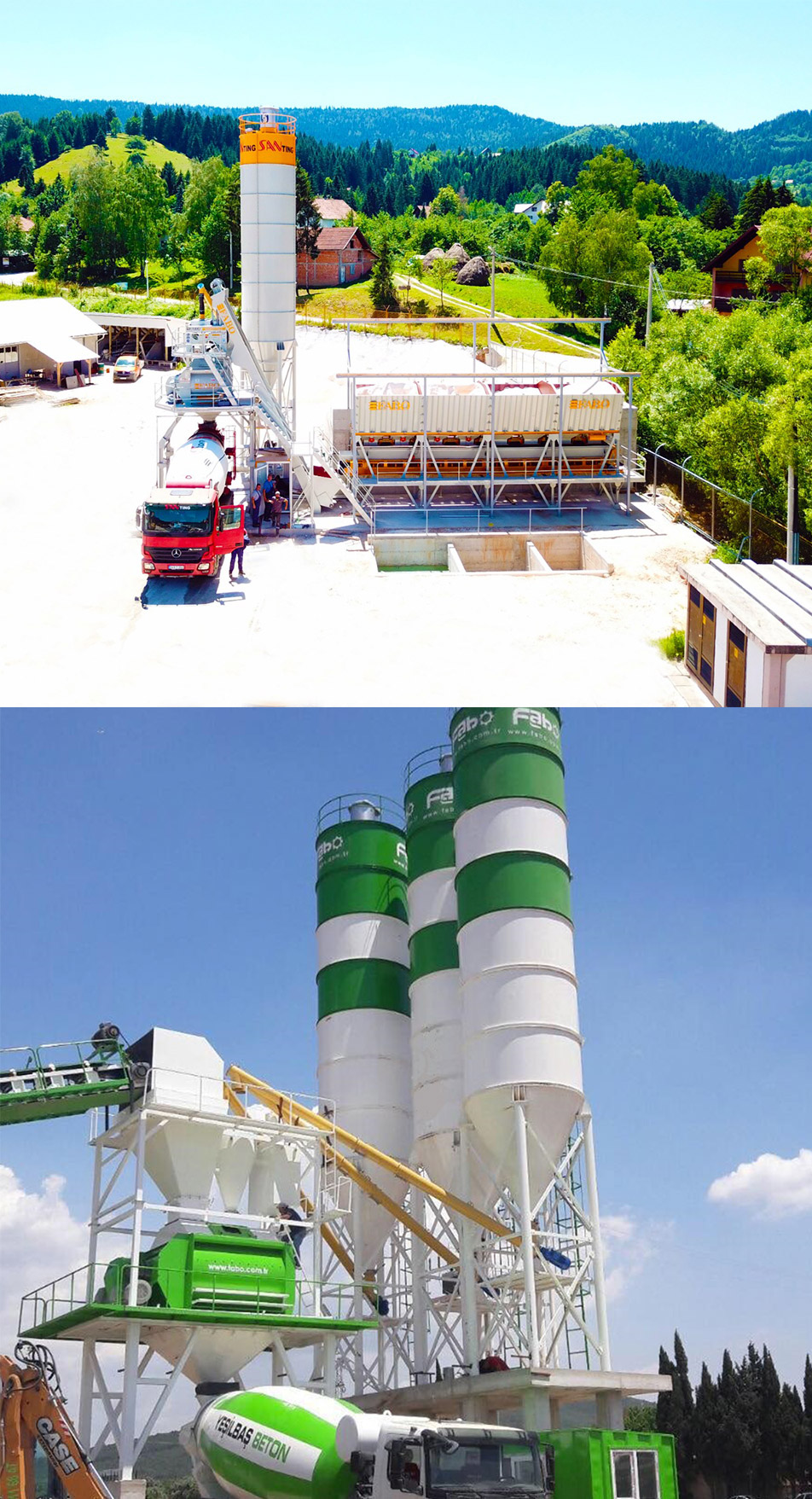
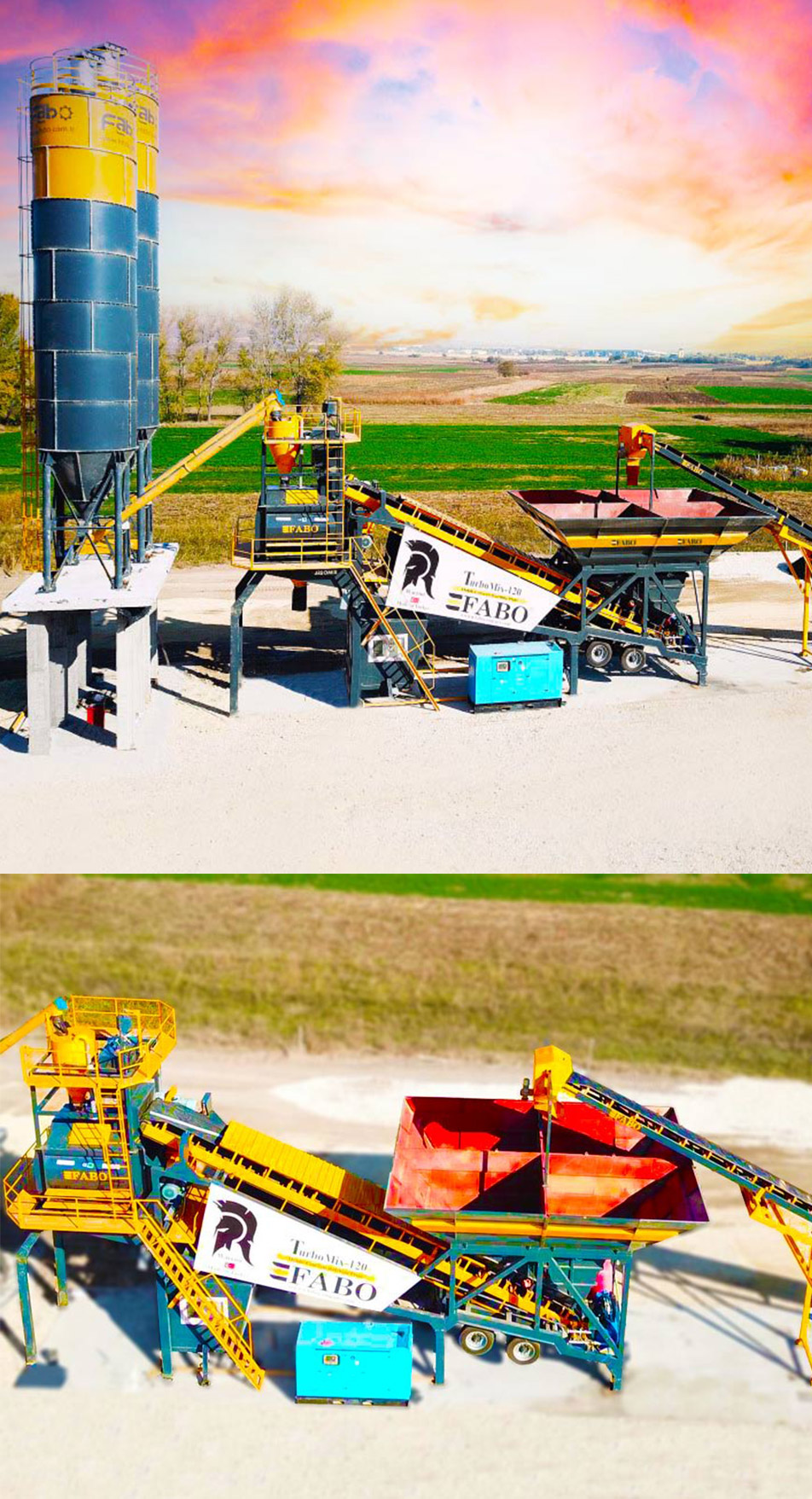
Mobile Concrete Batching Plant
The most important feature of mobile concrete plants is that all equipment that provides the concrete mixture and production is built on a portable body. Concrete plants with portable body design can be easily transported. Tcan be transported by loading it into an additional truck. Mobile concrete plants with low transport costs also reduce the cost of companies with ease of assembly and disassembly and provide long-term profitability.
Other highlights of mobile concrete mixing plants are as follows:
- To be able to work without any external power supply
- Easy to be ready for production during installation without the need for a crane
- Easy use in narrow work areas as it does not take up much space on the construction site
- Easy installation and disassembly
Compact Concrete Plant
Compact concrete power plants are the ones that combine the advantages of both fixed concrete plants and mobile concrete plants. They can be moved comfortably to the location of the project site. Thus, compact concrete plants, which are ready for production in a short time, carry out high capacity quality concrete production.
Compact concrete plants are mainly; aggregate bunker consists of aggregate weighing tape, mixer feed band, aggregate bucket, cement silos, cement spiral, concrete mixer and automation system. The advantages of compact concrete plants are as follows;
- Easily transportable
- Easy to use in narrower fields
- Works at high performance
- It helps to drastically reduce the operating and transportation costs of companies and increase profitability.
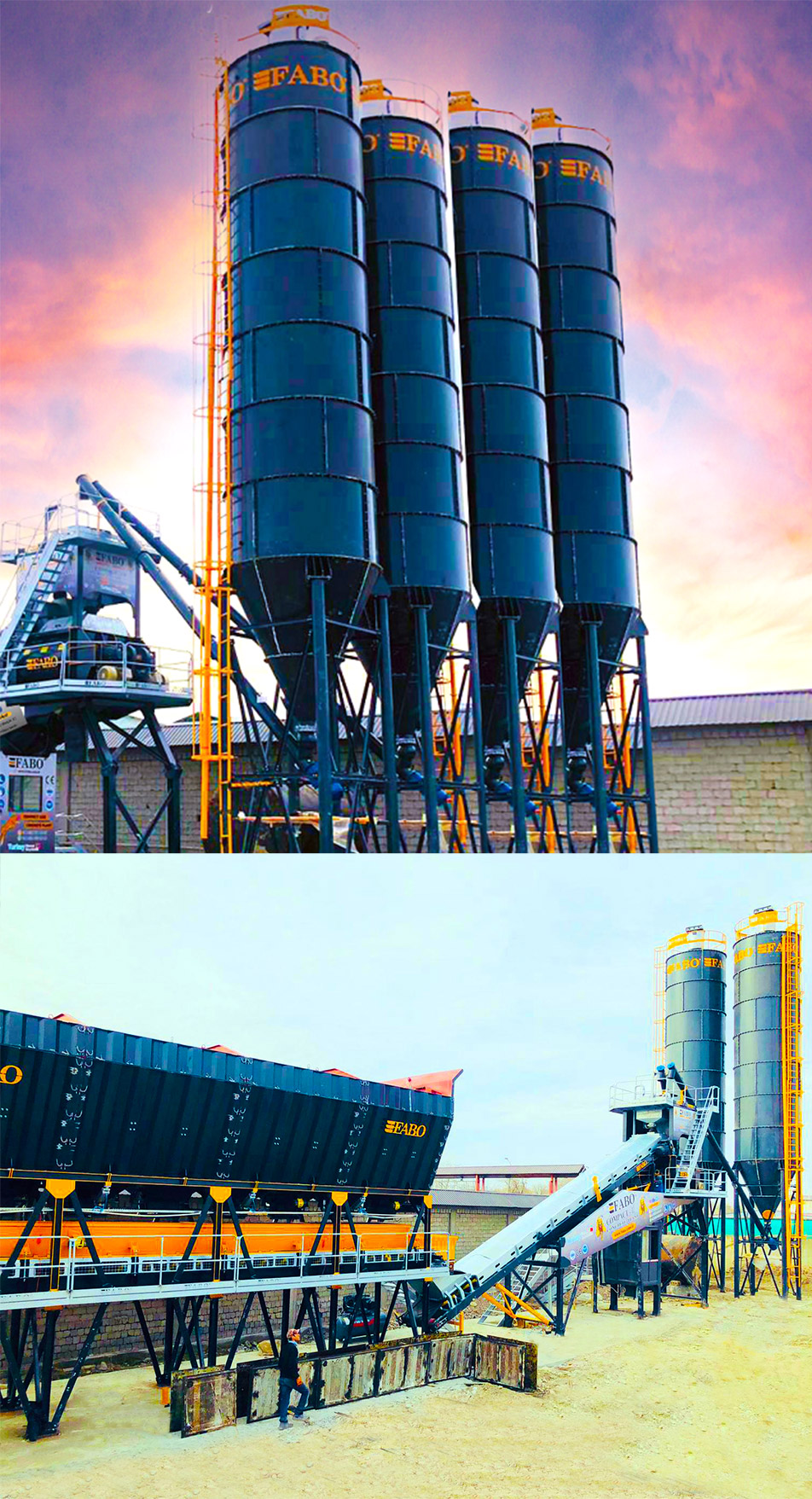
FABO Concrete Plants
FABO Global brand is one of the leading companies in the market that manufactures concrete plant and concave plant. The concrete plants produced in it are used in different continents of the world today. Concrete plants produced by FABO Global offer significant advantages to companies. These are the ones that are going to
- FABO Global concrete plant is designed by RI FABO engineers
- All concrete plants are produced using high technology
- Can be used for many years without any problems
- Companies can benefit from FABO’s service and spare parts service
- Allows companies to institution concrete plants at affordable costs

